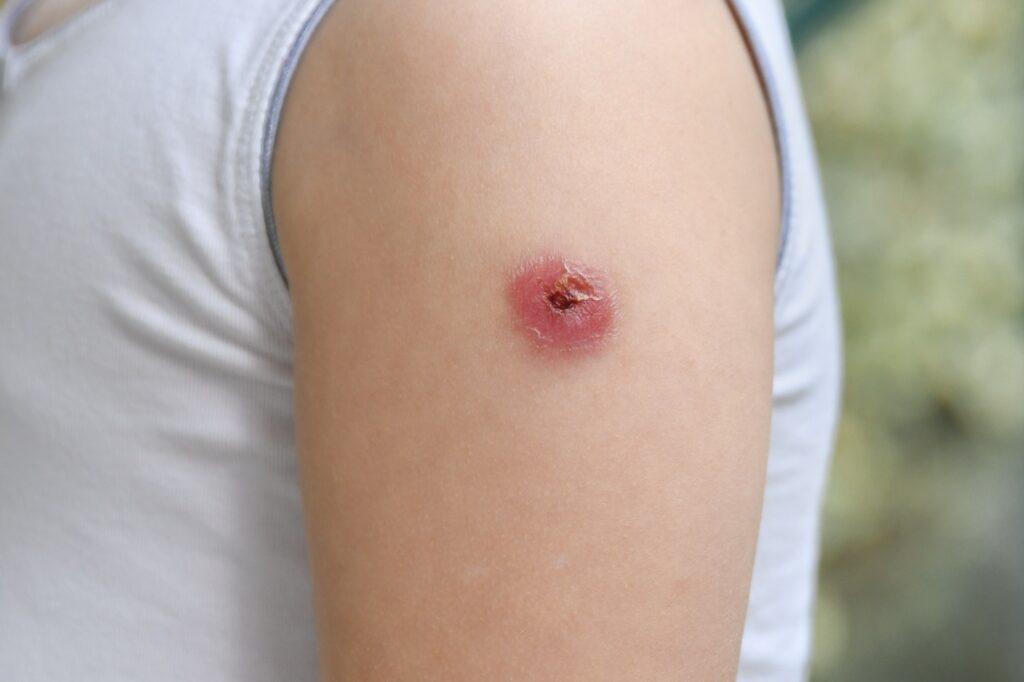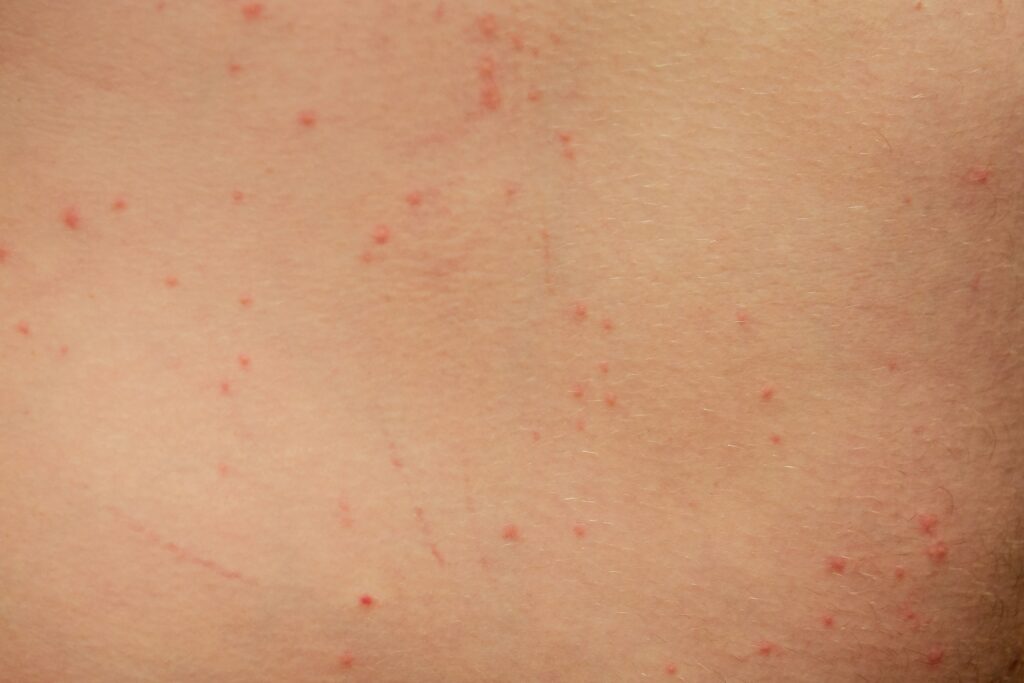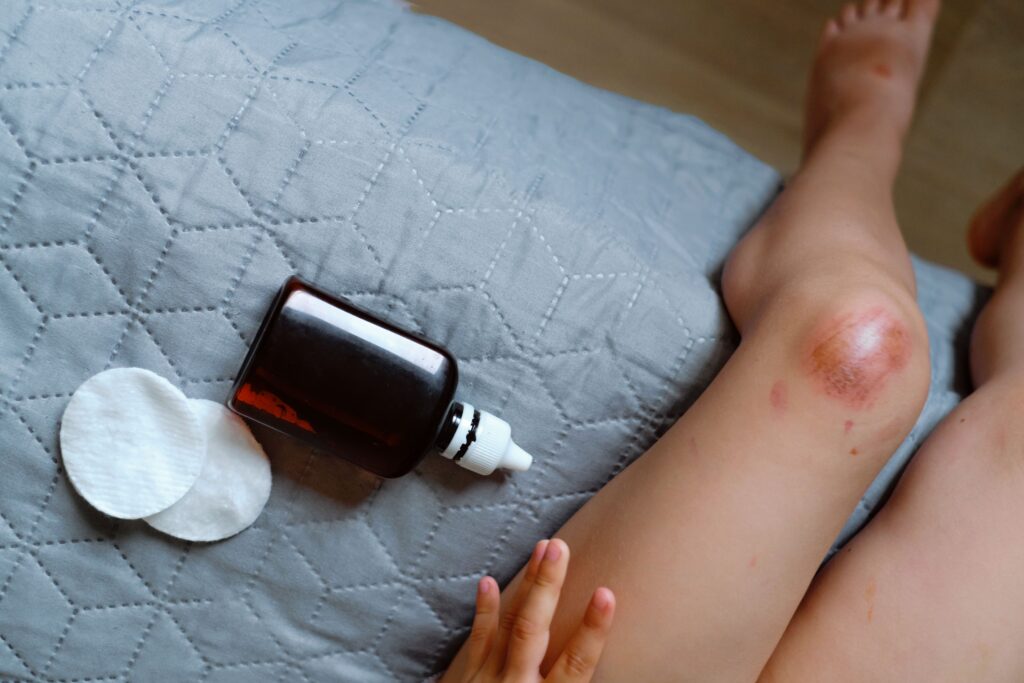The Mysterious World of Bed Bugs: Tiny Pests that Cause Big Worries
Ah, the world of nocturnal nuisances! Bed bugs, those tiny, reddish-brown pests, have been eliciting shudders and itchiness across the globe for centuries. These silent invaders have a knack for hiding in the most unexpected places: snugly tucked away in mattresses, lurking beneath bed frames, and even hitching a ride on luggage during global travels.
But what exactly are bed bugs, why are they such a pestering problem, and do they have the potential to transmit diseases? Let’s delve into this intriguing topic and separate fact from fiction.
First things first – bed bugs (scientifically known as Cimex lectularius) are parasitic insects that feed exclusively on blood. Most people associate them with uncleanliness or poor hygiene practices—however, this is nothing more than an urban legend spread around.
The truth is that these pesky critters can infest any space, regardless of its level of cleanliness. From upscale hotels to humble abodes, their presence can cause distress and anxiety for anyone unlucky enough to encounter them.
The common concerns surrounding bed bug infestations primarily revolve around their bites. When these tiny vampires sink their proboscis into your skin for a blood meal (yes, quite vampiric indeed), they leave behind itchy red welts that can drive you up the wall with irritation.
Many people worry about allergic reactions or secondary infections resulting from scratching these bites obsessively—a valid concern indeed. But here’s where we embark on our quest for knowledge: Can bed bugs actually transmit diseases?
This question has plagued researchers and concerned individuals alike. While other insects like mosquitoes serve as notorious disease vectors (think malaria or dengue fever), the medical community widely agrees that bed bugs do not directly transmit diseases to humans.
However, as we continue our exploration, we’ll uncover some intriguing exceptions to this general rule. So, let’s dig deeper into the world of these bloodsucking creatures and find out more about their impact on our well-being.
Prioritize Your Health: Educate yourself about the health concerns linked to bed bug infestations. Delve into our comprehensive guide, Bed Bug Health Concerns, and take proactive steps to maintain a healthy living environment.
Can bed bugs transmit diseases?
The Silent Menace: Bed Bugs and Their Alleged Disease Transmission
Ah, the ever-elusive bed bug—the bane of weary travelers and unsuspecting homeowners alike. With their reddish-brown bodies resembling a plump apple seed, these pesky creatures have become synonymous with sleepless nights and endless itching. However, amidst the turmoil caused by a bed bug infestation, it is crucial to separate fact from fiction when it comes to their potential as disease carriers.
Contrary to popular belief, bed bugs are not known to transmit diseases directly. These miniature nuisances do not possess the same disease-spreading prowess as mosquitoes or ticks.
Numerous studies conducted by esteemed entomologists have consistently reached this conclusion, offering reassurance that while their bites may be aggravating, serious illness is generally not a concern. One might question why bed bugs do not serve as vectors for diseases like other bloodsucking insects.
The key lies in their feeding habits. While mosquitoes feed on various animals during their bloodthirsty quests and ticks latch onto humans as they roam in grassy areas, bed bugs are exclusively opportunistic feeders that prefer humans for their nightly nourishment.
A study published in the Journal of Medical Entomology further supports this notion by testing the ability of bed bugs to harbor infectious organisms without transmitting them. Researchers found that although certain pathogens were detected within the bodies of bed bugs, these minuscule vampires were unable to transmit or replicate them effectively enough to pose a significant threat to humans.
So fret not—bed bug bites may be itchy and irritating, but rest assured that they are unlikely to introduce any life-threatening diseases into your system. That being said, it is important to distinguish between genuine health risks associated with these bedbug bites, and other secondary issues that can arise from an a bed bug infestation—a topic we will delve into in the following sections.
Bed bug bites and their effects on health

The Itchy Truth: Unraveling the Mystery of Bed Bug Bites
When it comes to bed bugs, their bites are often the source of both annoyance and concern. These tiny pests, while not known to spread disease, can still cause a range of reactions in humans. Let’s delve into the world of bed bugs and bug bites and explore how they can affect our health.
When a bed bug bites, it injects saliva that contains anticoagulant compounds into our skin. This saliva acts as a numbing agent, allowing the pests to feed on our blood undisturbed.
However, for most people, this injection triggers an immune response leading to an allergic reaction with various symptoms. The severity of these reactions depends on individual sensitivity and can vary from person to person.
One common sign of a bed bug bite is itching — an incessant itch that seems determined to drive you up the wall. When these sneaky insects pierce your skin with their sharp proboscis, they leave behind traces of saliva that can cause irritation and trigger an irresistible need to scratch.
It’s important to resist scratching as excessive friction may break the skin and lead to potential infections. In addition to itching, redness and swelling are typical manifestations around the bite area.
As your body reacts defensively against substances in the bugs’ saliva, it releases histamines that dilate blood vessels near the bite site causing redness and puffiness. While these symptoms may seem alarming at first glance, rest assured they are typically mild and pose no significant risk unless complicated by secondary infections or allergies.
It’s worth noting that individual sensitivity plays a crucial role in determining how someone reacts to bed bug bites. Some individuals may exhibit minimal or no visible signs at all after being bitten by these pesky critters, while others might experience more pronounced symptoms like blistering or severe swelling.
Allergic reactions to bed bug bites are rare, but if you have a history of allergies, it’s important to be vigilant and seek medical advice if necessary. So, while bed bug bites may not spread diseases like their blood-sucking counterparts such as mosquitoes or ticks, they can still be a nuisance.
The itching, redness, and swelling that follow a bite can disrupt your peace of mind and quality of sleep. While prevention is always better than dealing with an infestation later, understanding the effects of these bites empowers us to take prompt action when faced with these persistent pests.
Sleep Deprivation and the Toll on Mental Health

Anxiety, Discomfort, and the Sleepless Nights
Living with a bed bug infestation is far from a pleasant experience. The anxiety brought on by the knowledge that these pesky pests are lurking in your home can be overwhelming.
As night approaches and people sleep less, the fear of getting bitten intensifies, causing many sleepless nights. Tossing and turning, constantly checking for bugs or bite marks, while people sleep and it’s no wonder that sleep deprivation becomes a significant concern for those affected.
The Impact on Mental Well-being
Sleep deprivation due to bed bugs takes a toll not only on physical health but also mental well-being. Lack of proper rest can lead to irritability, mood swings, and difficulty concentrating during the day.
The constant worry about bed bug bites and infestation can contribute to heightened levels of stress and anxiety. Over long periods of time, this chronic stress may even lead to more severe issues such as depression or exacerbate existing mental health conditions.
Breaking Free from the Bed Bug Nightmare
Escaping this vicious cycle is crucial for restoring both mental and physical health. Addressing the root cause by eliminating bed bugs through professional extermination services is essential. Seeking professional help not only ensures effective medical attention and treatment but also provides peace of mind knowing that experts have addressed the problem thoroughly.
The Dangers of Excessive Scratching

An Unrelenting Itch That Begs to Be Scratched
One of the most frustrating aspects of dealing with bed bug bites is the incessant itch they produce. These small bite marks may seem harmless at first glance but can drive anyone crazy with their persistent itchiness. The instinctive reaction leads many to scratch these insect bites relentlessly in an attempt to find relief.
Open Wounds: A Gateway for Infection
While scratching may provide temporary relief, it can have serious consequences. Constantly breaking the skin through scratching leaves it vulnerable to infection.
Bed bug bites, if scratched excessively, can form open wounds that bacteria can easily enter. The risk of developing a skin infection is particularly high when proper hygiene measures are not followed.
Preventing Infections: Caring for Your Skin
To avoid potential infections resulting from bed bug bites, it is crucial to practice proper wound care. Wash the affected area with mild soap and warm water, gently pat it dry, and apply an over-the-counter antibiotic ointment. It’s essential to resist the urge to scratch and keep the bite marks clean and free from bacteria.
Remember, prevention of insect, or pest is always better than cure. By addressing a bed bug infestation promptly with professional help and implementing preventive measures such as regular mattress inspections and sealing cracks in walls or baseboards, you can minimize the risk of encountering these pests in your home.
Taking action not only protects your physical health but also ensures peace of mind for a good night’s sleep. So don’t let these blood-sucking intruders disrupt your life any longer—take control and reclaim your home!
Rare Instances of Indirect Disease Transmission
The Hidden Potential: Unlikely but Not Impossible
While bed bugs are not known to be efficient disease vectors, there have been rare occurrences where these pesky insects have been found carrying pathogens. It’s important to note that such instances are exceptionally uncommon, and the likelihood of bed bugs transmitting diseases is generally considered low. Nevertheless, let’s delve into this intriguing topic and explore some documented cases.
It’s been discovered that certain pathogens can be present in bed bugs due to their opportunistic feeding behavior. For some disease organisms for instance, studies have identified the presence of the Hepatitis B virus in bed bugs.
However, before panic sets in, it’s crucial to understand that the mere presence of a pathogen within a bed bug does not guarantee transmission or infection. Transmission requires specific conditions and interactions between the pathogen, the bed bug, and humans.
In most cases, these conditions do not align favorably for disease transmission. Despite the discovery of Hepatitis B virus in a few bed bugs, it has been established in laboratory studies of disease organisms that they are incapable of replicating or infecting humans effectively.
The reasons behind this ineffectiveness lie in both biological and environmental factors. Bed bugs lack certain mechanisms required for successful viral replication within their bodies.
Furthermore, human blood is necessary for their survival during each feeding cycle; thus, they rarely feed on multiple individuals during a single blood meal. While it may seem alarming to discover pathogens such as Hepatitis B virus present in some bed bugs, it is essential to understand that disease transmission under these circumstances is extremely unlikely.
These findings serve as reminders for researchers to continuously investigate potential risks associated with various pests. However,treating bed bugs and preventing infestations should remain our primary concern when dealing with these nuisance insects rather than worrying about direct disease transmission.
Preventive Measures Against Potential Health Risks from Bed Bugs
Tips for Preventing Infestations in Homes and Hotels
Don’t Let the Bed Bugs Bite: Protecting Your Space Bed bugs may be tiny, but they can cause big problems when they infest your home or hotel room.
To prevent these pesky pests from turning your peaceful slumber into a nightmare, it’s crucial to take proactive measures. Here are some tips to keep those bed bugs at bay:
One of the first lines of defense is regular inspection. Check every nook and cranny that bed bugs could occupy—mattresses, box springs, headboards, furniture seams, and even electrical outlets.
Look for signs like small brown spots on bedding or furniture and shed skins left behind by adult bed bugs. Additionally, when you travel or stay in a hotel, inspect your luggage thoroughly before bringing it into your home.
Pay special attention to seams and crevices where these crafty critters might hitch a ride. Taking these precautions can help you prevent bed bugs from making their way into your personal space.
Sealing Cracks in Walls or Baseboards as Entry Points for Bed Bugs
Blocking Their Path: Shielding Your Space While inspecting common hiding spots is essential, fortifying your living space against potential bed bug invaders is equally crucial.
One effective method is sealing cracks in walls or baseboards that could serve as entry points for these persistent pests. Start by carefully examining all potential openings along walls and baseboards.
Use caulk or sealant to fill any cracks or gaps that you find. By making it difficult for bed bugs to access your living area, you’re taking an important step towards preventing an infestation.
Remember that bed bugs can squeeze through amazingly small spaces—about the width of a credit card! So, thoroughness is key when sealing off these entry points.
By denying them easy access, you’re making it harder for these unwanted guests to make themselves at home. Taking a proactive stance and implementing preventive measures can save you from the annoyance and potential health risks associated with bed bug infestations.
Stay vigilant, be meticulous in your inspections, and ensure that your living space is as secure as possible. Now that you know how to prevent bed bugs from infiltrating your personal sanctuary, rest easy knowing that you’ve taken the necessary steps to protect yourself.
Proper Response if Bitten by a Bed Bug or Concerned about Potential Diseases

Seeking Relief from Itchiness and Promoting Healing
When faced with the irritating aftermath of a bed bug bite, it’s crucial to alleviate the itchiness and promote healing. Most people experience itchiness as a primary symptom, accompanied by a small bite mark that may become reddish-brown over time. To combat the urge to scratch, which can lead to skin infections or exacerbate the irritation, there are several self-care measures you can take.
Firstly, resist the temptation to scratch the affected area. Instead, focus on cleaning it gently with mild soap and water.
Afterwards, apply an over-the-counter anti-itch cream or calamine lotion to soothe the skin. These topical remedies can provide temporary relief by reducing inflammation and minimizing discomfort.
To further enhance healing, consider using cold compresses or ice packs wrapped in a clean cloth on the bites for short durations. The cold temperature helps reduce swelling and numbs the area slightly, providing respite from itching sensations.
Maintaining good personal hygiene is essential during this period. Keep your nails trimmed short to prevent accidental scratching of bites while you sleep or engage in other types of daily activities.
Addressing Concerns about Potential Diseases
Though bed bugs are not known to transmit diseases directly through their bites, it’s natural for concerns to arise regarding potential health risks. However, rest assured that instances of disease transmission from bed bugs are exceptionally rare. If you suspect any signs of an infected bite or experience unusual symptoms following exposure to bed bugs (such as prolonged fever), it is advisable to consult a healthcare professional for proper evaluation and guidance specific to your situation.
To gain peace of mind about potential diseases carried by bed bugs but not transmitted through bedbug bites in known cases among humans (such deadly diseases such as Chagas disease), it is crucial to stay informed. Educate yourself by referring to reputable sources like the Centers for Disease Control and Prevention (CDC) or consulting with professional pest control services.
Remember, prevention and early detection are key in dealing with bed bugs. By understanding their habits, you can take preventive measures to avoid infestations in your home or during travels – such as inspecting mattresses, furniture, and even luggage after staying in hotels or cruise ships where these nuisance pests may lurk.
While bed bug bites can be irritating and uncomfortable, they do not pose significant health risks due to disease transmission. By practicing proper self-care techniques for itch relief and staying informed about potential diseases associated with these parasites, you can mitigate concerns and ensure your well-being.
D-Termination, the premier pest control service in Las Vegas, is your key to conquering bed bugs!

Are you currently facing a bed bug infestation in Las Vegas? Fear not, as D-Termination is here to offer assistance. Our team of expert professionals specializes in effectively eliminating bed bug infestations and restoring comfort to your living space. Bid farewell to bed bugs and make the choice to rely on D-Termination for highly effective pest control today!
To book your bed bug control service and reclaim your space from these persistent pests, reach out to us at 702-919-6310 or visit dtermination.com.
Frequently Asked Questions:
Bed bugs do not transmit diseases to humans.
Being around someone with bed bugs is generally considered safe, as bed bugs do not directly pose health risks.
Bed bugs do not transmit diseases because they do not carry or harbor pathogens known to infect humans.
If you have slept in a hotel room with bed bugs, it is advisable to carefully inspect your belongings, isolate and wash any potentially infested items, and monitor yourself for any signs of bites or skin reactions.
If you found this article enjoyable, you might also find the following related content worth exploring:
Pestilence In The Mind: Unraveling The Profound Psychological Consequences Of Bed Bug Infestations







